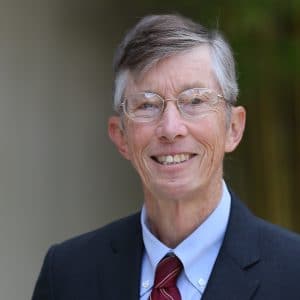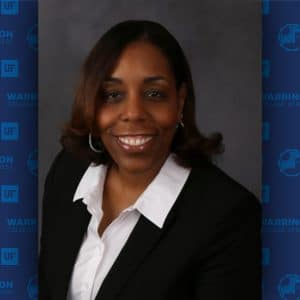Warrington in the News Articles: page 34
It’s no secret that Warrington faculty are internationally renowned for their innovative research. The media looks to our scholars for insights and impactful news. See below where our faculty are featured in the news.

Avoiding potentially divisive language and encouraging tolerance are critical steps to creating an inclusive work environment, but they carry a downside. Being politically correct can deplete employees and lead them to act both angrily towards and withdraw from their spouse that evening at home. Warrington’s Klodiana Lanaj and alumnus Joel Koopman, and colleagues write that the depletion that employees feel after being politically correct is problematic and should be of concern to managers.
When being politically correct at work depletes employees and backfires at home
LSE Business Review
These are just a few examples of the reality that startups are too often funded by dreams that turn out to be nightmares. We recall Apple, Amazon.com, Google, and other grand IPO successes and forget thousands of failures.
Recent data from Cordell Eminent Scholar Jay Ritter (“Mr. IPO”) of the University of Florida show that 58.5% of the 8,603 IPOs issued between 1975 and 2018 had negative three-year returns, and 36.9% lost more than 50% of their value.
Opinion: Delivery drones, robotaxis, even insurance — wildly hyped dreams for AI startups are giving tech investors nightmares
MarketWatch
In 2021, Cordell Eminent Scholar Jay Ritter predicted that half of SPACs would need to return money to shareholders. After looking into what would happen if half of SPACs didn’t De-SPAC, a new Bloomberg Law analysis finds that more than half of them still haven’t.
ANALYSIS: Time Pressure Builds on De-SPAC Deals
Bloomberg Law
Research insights from Cordell Eminent Scholar Jay Ritter and Ph.D. student Minmo Gahng contribute to this story about the roughly 25 SPACs (special purpose acquisition companies) have concerns about their financial future, according to the Wall Street Journal.
Doc’s Prescription: Many special purpose acquisition companies might go bust
Sarasota Herald-Tribune
SPACs are known to be a roundabout investment vehicle to take private companies public. Not this one. Bull Horn Holdings is merging with biotech Coeptis Therapeutics, a public company traded over the counter.
It remains to be seen if other sponsors would replicate Bull Horn’s model. It is not uncommon for a stock traded over-the-counter to have a public offering and call it an IPO, according to Jay Ritter, Cordell Eminent Scholar.
“The market is skeptical about the ability of the SPAC to complete the merger without massive redemptions,” Ritter said.
This SPAC is merging with an already-public company as sponsors get creative before time runs out
CNBC
Cordell Eminent Scholar Jay Ritter shares his insights for this story about why a stagnant IPO market means there is less investor appetite for shares in private companies, which is a problem for the companies that trade those shares.
IPOs are dead, and that’s bad news for the secondary market in private shares
Observer
Research insights from Cordell Eminent Scholar Jay Ritter and Ph.D. student Minmo Gahng inform this story about the more than two dozen companies that say they may not survive much longer.
SPACs Are Warning They May Go Bust
The Wall Street Journal
Cordell Eminent Scholar Jay Ritter, who researches IPOs argues that while Didi is “at the mercy of the Chinese government,” the company’s dominance in China creates an opportunity for Didi to raise prices and attain profitability—provided it can win the state’s support.
Didi Global languishes in limbo, ordered by Beijing to pull shares off Wall Street and, for now, denied permission to float them in Hong Kong
Fortune
Congratulations to DBA student Nichole Wiley-Marks (DBA ’24) for being named among the top 50 women leaders of Colorado for 2022 from Women We Admire.
Wiley-Marks is Vice President & Head of Go-to Market Operations at Included Health.
The Top 50 Women Leaders of Colorado for 2022
Women We Admire
University of Florida economist Dr. Amanda Phalin said she anticipates a recession to form over the next year or two despite efforts to avoid job losses.
“It is possible to raise the interest rates without increasing unemployment theoretically, but it has never been done before,” Phalin explained.

